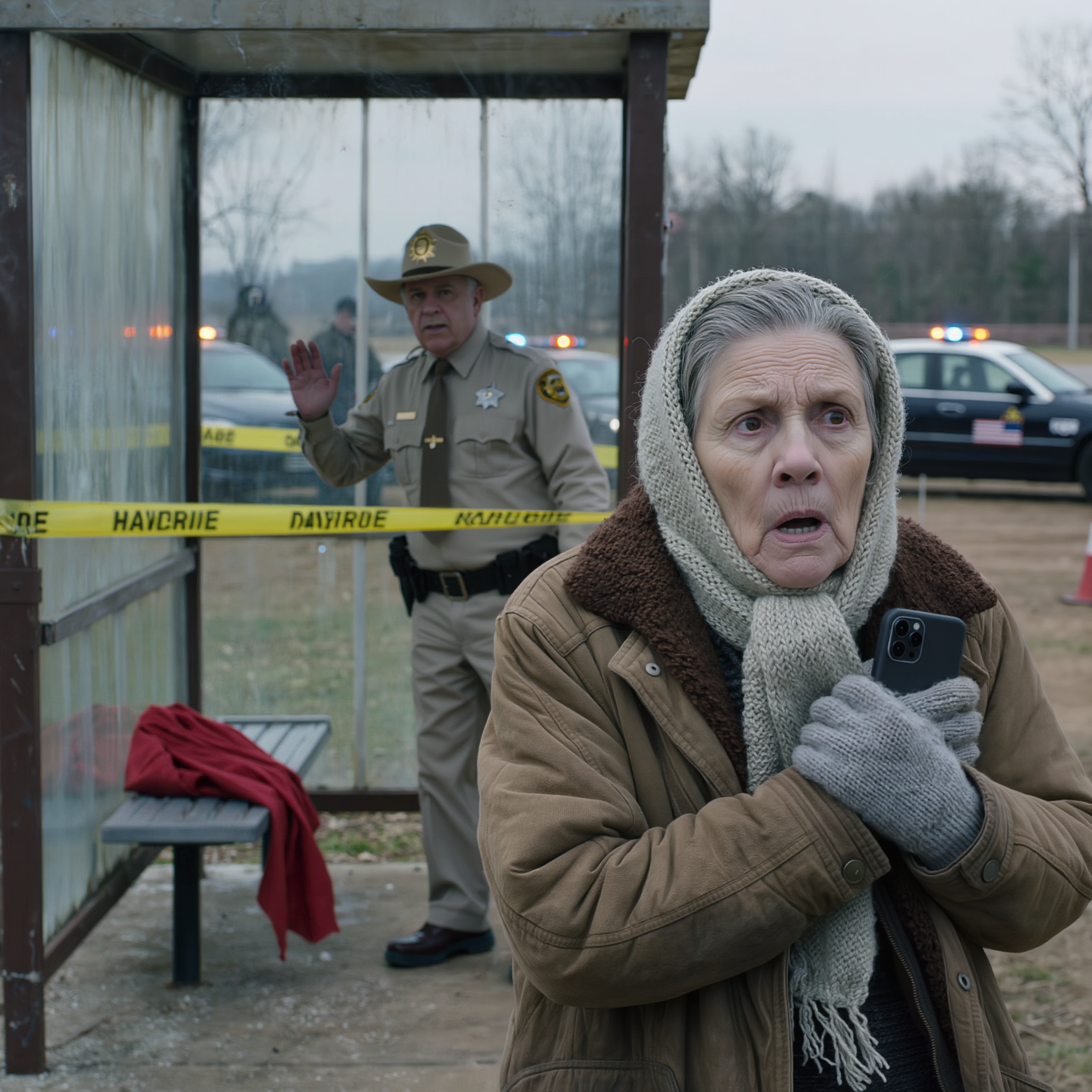They caught her at the property gate, trying to climb the fence in her thousand-dollar suit. She was screaming about unlawful arrest and police brutality and demanding her lawyer, but I noticed she wasn’t screaming about innocence. Not once.
The trial took four months. Rachel’s backup drive contained six years of meticulous record-keeping: recordings of Vanessa plotting against elderly victims, financial records showing she’d done this to eleven families across Montana and Wyoming, emails coordinating with corrupt officials, and a video—the encrypted one that finally opened—of Vanessa admitting to arranging Martha Hartley’s death.
Peter Mitchell turned state’s evidence immediately, providing details about eight other lawyers and three judges Vanessa had corrupted. Deputy Marcus Hall got twenty years for his role in Rachel’s murder. His cousin, the actual killer, was arrested in Nevada trying to cross into Mexico.
Vanessa’s trial was mercifully short. The evidence was overwhelming. The jury deliberated for ninety minutes. Guilty on all counts: conspiracy to commit murder, eleven counts of elder fraud, racketeering, forgery, bribery of public officials.
The judge gave her life in prison without the possibility of parole.
I attended every day of the trial, sitting in the front row, making sure she saw me. Making sure she understood that the farm woman she’d underestimated had been the one to bring her down.
Robert filed for divorce before the trial even ended. He moved into town, started therapy, joined a support group for family members of criminals. We have dinner together every Sunday now—just the two of us, working on rebuilding a relationship that had been broken long before Vanessa tried to kill me.
Danny took a gap year before college, working with a victim’s advocacy group that helps elderly people who’ve been targeted by fraud. He says it’s his penance for the part he played, however unwitting. I tell him he’s a hero who saved his grandmother’s life, but he doesn’t believe me yet. Maybe someday.
The competency hearing was canceled. Judge Winters called me personally to apologize and commend my “exceptional civic courage.” Several families of Vanessa’s other victims reached out, wanting to hear how I’d survived, how I’d fought back. I met with them, shared Rachel’s story, reminded them that being old doesn’t mean being helpless.
Spring came, and I planted the strawberry patch again—twice as big as before. Danny helped, and we didn’t talk about strawberry summer, but we both thought about it. Some codes don’t need to be spoken to be understood.
The farmhouse is quiet again, the way Frank and I always liked it. But now I have a security system and cameras, and Tom Brennan checks on me three times a week. Not because I need protecting—I proved I can do that myself—but because that’s what friends do in a small Montana town.
I’m sixty-three years old, and I’m just getting started.
People think age makes you vulnerable, makes you an easy target. Vanessa saw my gray hair and my widow’s status and assumed I was helpless. She saw kindness and mistook it for weakness. She saw a farm woman living alone and thought I’d be easy to erase.
But she didn’t understand something fundamental: people who have lived longer have survived more. They’ve weathered storms that would break younger people. They’ve learned to read situations, to trust their instincts, to fight when fighting is required.
Age isn’t weakness. It’s armor built from decades of survival. It’s wisdom earned through heartbreak and loss and victory. It’s knowing when to be soft and when to be steel.
Vanessa’s biggest mistake wasn’t underestimating me. It was not understanding that a grandmother’s love is the most ferocious force in nature. You can threaten me. You can try to steal from me. But threaten my grandson, and you’ll learn what real danger looks like.
W zeszłym tygodniu dostałem list od ojca Rachel Morrison. Był w konflikcie z córką po tym, jak zmieniła nazwisko i zniknęła, szukając sprawiedliwości. Podziękował mi za to, że ostatni akt odwagi Rachel okazał się czymś znaczącym. Powiedział, że jego matka, Martha, polubiłaby mnie.
Odpisałam mu i powiedziałam, że żałuję, iż nie postawiłam Rachel w innej sytuacji. Że była odważniejsza, niż jej się wydawało. Że uratowała nie tylko mnie, ale i wszystkie inne rodziny, które Vanessa by obrała za cel, gdyby Rachel nie poświęciła sześciu lat na budowanie sprawy, która w końcu ją doprowadziła do upadku.
Znów noszę swój czerwony płaszcz. Nie dlatego, że muszę, ale dlatego, że nie chcę się go bać. Wisi w mojej szafie między starą dżinsową kurtką Franka a szkolnym podobizną Danny’ego, którą zostawił tu lata temu. Trzy pokolenia rodziny Fosterów, każde z nas na swój sposób przeżyło.
Każdego wtorku i piątku rano idę tą żwirową alejką, żeby złapać autobus linii 47 do miasta. Biuro szeryfa umieściło na przystanku tablicę pamiątkową – małą mosiężną tabliczkę z napisem: „Pamięci Rachel Morrison, która oddała życie, chroniąc innych”.
Czasem stoję tam na chwilę, zanim przyjedzie autobus, patrzę na tę tabliczkę i szepczę: „Dziękuję”.
Bo Rachel Morrison może i zaczynała jako część planu Vanessy, ale skończyła jako bohaterka. A bohaterowie zasługują na pamięć.
Montański świt wstaje zimny i czysty, jak zawsze, jak zawsze będzie. Wciąż tu jestem. Moja farma wciąż należy do mnie. Mój wnuk wraca do zdrowia. A gdzieś w więzieniu o zaostrzonym rygorze w Deer Lodge Vanessa Foster ma resztę życia, żeby zastanowić się nad tym, co się dzieje, gdy lekceważy się babcię w czerwonym płaszczu



Yo Make również polubił
15 Roślin, Które Naturalnie Poprawią Jakość Powietrza w Twoim Domu
Śmiali się z jej „fałszywych” medali. Potem wszedł generał i wszystko zmienił
Chleb Domowy z Airfryera
Strawberry Garden – ciasto jogurtowo-śmietankowe bez pieczenia z chrupiącą czekoladową podstawą